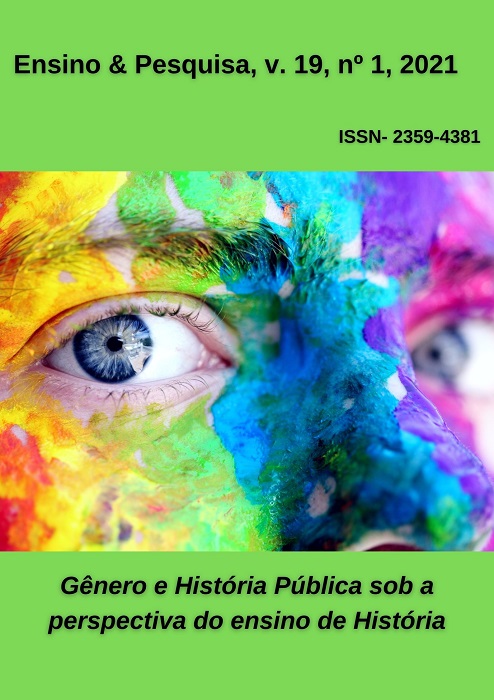Fallacies, post-truth and Science Education
DOI:
https://doi.org/10.33871/23594381.2021.19.1.3932Keywords:
post-truth, social constructivism, postmodernism, deconstructionismAbstract
Initially, this text provides a brief overview of the dynamics and harmful effects of the current proliferation of fake news and pseudo-scientific theories based on fallacies and other types of rhetorical stratagems that, systematically, have been spreading hatred and prejudice towards minorities and instigating negative attitudes towards science, reason and democracy. Soon thereafter, he briefly discusses the ironic discursive appropriation of some relativist thesis by conservative pseudo-intellectuals. Then, it seeks to demonstrate a certain degree of penetration of these same theses in the area ofscience education and the possible educational implications of an eventual generalized adherence to such assumptions. Finally, it presents some methodological observations directed to those dedicated to research in the teaching area and a didactic suggestion to try to mitigate some problems of scientific literacy of students, caused by the insufficiency of critical analysis practices of academic texts or scientific dissemination in school activities.
Downloads
References
ALMOSSAWI, A. O livro ilustrado dos maus argumentos. Sextante, 2017. Disponível em: https://bookofbadarguments.com/pt-br. Acesso em: 27 mai. 2020.
ASSIS, E. A; SILVA, F. W. O. Uma estratégia de ensino inspirada na Dialética Socrática e na Erística. Educação em Foco, v. 14, n. 18, p. 149-167, 2012.
BAILIN, S. Critical thinking and science education. Science & Education, v. 11, p. 361-375, 2002.
BLOOR, D. Conhecimento e imaginário social. 2a ed. Trad. Marcelo Amaral Penna-Forte. São Paulo: Editora UNESP. 2009
BLOOR, D. Anti-Latour. Studies in History and Philosophy of Science, v.30, n.1, p.81-112, 1999.
BOYD, R. N. On the current status of the issue of scientific realism. In: HEMPEL, C; PUTTMAN, H; ESSLER, W. (Eds.). Methodology, Epistemology, and Philosophy of Science. Dordrecht: Springer, 1983. p. 45-90.
BUNGE, M. A critical examination of the new sociology of science part 1. Philosophy of the Social Sciences, v. 21, n. 4, p. 524-560, 1991.
CHIBENI, S. S. A inferência abdutiva e o realismo científico. Cadernos de História e Filosofia da Ciência, v. 6, n. 1, p. 45-73, 1996.
CLANDININ, D. J.; CONNELLY, F. M. Narrative Inquiry In: GREEN, Judith L., CAMILLI, Gregory, ELMORE, Patricia B. Handbook Of Complementary Methods In Education Research. Washington: American Educational Association, 2006. p. 477-487.
COLLINS, H.M; PINCH, T. The Golem: What Everyone Should Know About Science, Cambridge: Cambridge University Press, 1992.
DIAS, V. M. Investigação do Cibercrime. Data Venia, n. 1, p. 63-88, 2012.
FALTAY, P. Conspiração e engajamento no YouTube: o modelo de negócios paranoide das plataformas. Anais do VI Simpósio Internacional LAVITS, Salvador, 26 a 28 jun. 2019.
FREUND, A. Oral history as process-generated data. Historical Social Research, n. 10, p. 22-48, 2009.
GROSS, P. R; LEVITT, N. Higher superstition: The academic left and its quarrels with Science. Baltimore: Johns Hopkins University Press, 1994.
HIGINO, A. F. F; SILVA, F. W. O. Esquemas de argumentação em física de estudantes dos períodos iniciais de engenharia. 21º Simpósio Nacional de Ensino de física. Uberlândia, 2015. Atas... São Paulo: SBF, 2016.
JUNGWIRTH, E. Avoidance of logical fallacies: A neglected aspect of science"education and science"teacher education. Research in Science & Technological Education, v. 5, n. 1, p. 43-58, 1987.
KAKUTANI, M. A morte da verdade: notas sobre a mentira na era Trump. Rio de Janeiro: Editora Intrínseca, 2018.
KUHN, T. S. The structure of scientific revolutions. Chicago: University of Chicago Press, 1962.
LATOUR, B. Why Has Critique Run out of Steam? From Matters of Fact to Matters of Concern. Critical Inquiry, v. 30, n. 2, p. 225-248, 2004.
LATOUR, B; WOOLGAR, S. Laboratory Life: The Construction of Scientific Facts. 2nd ed. Princeton: Princeton University Press, 1986.
LAUDAN, L. Science & Relativism. Chicago: Chicago University Press, 1990.
LEHMAN, D. Signs of the Times: Deconstruction and the Fall of Paul de Man. New York: Simon & Schuster, 1991.
MATTHEWS, M.R. Philosophical and Pedagogical Problems with Constructivism in Science Education. Tréma, n. 38, p. 41-56, 2012.
MATTHEWS, M. R. In defense of modest goals when teaching about the nature of Science. Journal of Research in Science Teaching, v. 35, n. 2, p. 161-174, 1998.
MCINTYRE, L. Post-Truth. Cambridge: MIT Press, 2018
NORRIS, S. P; PHILLIPS, L. M. How literacy in its fundamental sense is central to scientific literacy. Science Education, v. 87, n. 2, p. 224-240, 2003.
PHILLIPS, D. C. The good, the bad, and the ugly: The many faces of constructivism. Educational Researcher, v. 24, n. 7, p. 5-12, 1995.
SCHOPENHAUER, A. 38 estratégias para vencer qualquer debate: A arte de ter razão. Girassol Brasil, 2014.
SLEZAK, P. Appraising Constructivism in Science Education. In: MATTHEWS, M. R. (Ed.). International Handbook of Research in History, Philosophy and Science Teaching. Springer, Dordrecht, 2014. p. 1023-1055.
SOKAL, A; BRICMONT, J. Impostures intellectuelles. Paris: Odile Jacob, 1997.
WOOLGAR, S. Science: The very idea. London: Tavistock Publications, 1988.
ZAMMITO, J. H. A nice derangement of epistemes: Post-positivism in the study of science from Quine to Latour. Chicago: University of Chicago Press, 2004.
ZEIDLER, D. L. The central role of fallacious thinking in science education. Science Education, v. 81, n. 4, p. 483-496, 1997.

